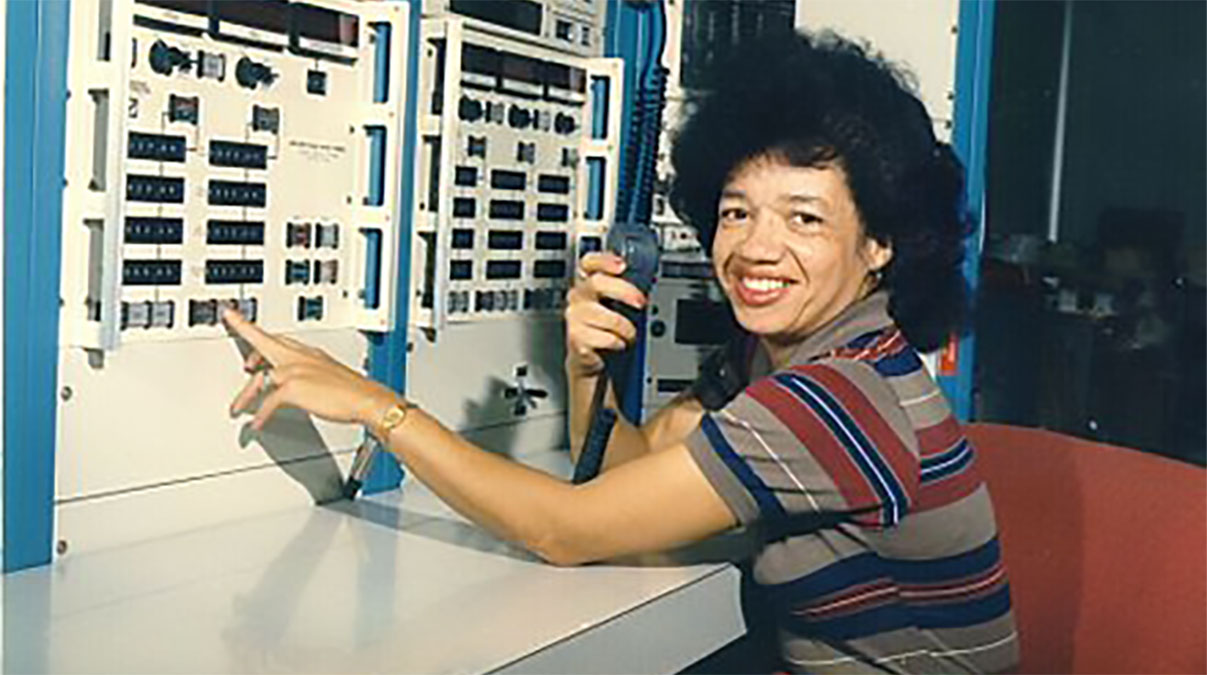
Sept. 10, 1942

Longtime NASA mathematician and aeronautical engineer Christine Mann Darden was born in Monroe, North Carolina.
NASA Langley hired her as a “human computer,” and she became the first Black woman promoted into senior executive service, the top rank in the federal civil service.
Her mother was a teacher, and when Darden was 4, she began taking her with her. Her mother said she could play outside, “but who was I going to play with?” she asked. “I stayed and did the first grade work. [At the end of the year], she promoted me to second grade.” A high school geometry teacher inspired Darden to study math. In 1958, she became class valedictorian of her high school and received a scholarship to attend Hampton Institute (now Hampton University).
In 1960, she took part in lunch counter sit-in protests at Woolworth’s in downtown Hampton, Virginia. After graduating, she taught math, and NASA hired her in 1967 in its “computer pool.” She asked for a transfer to engineering, which her supervisor told her was impossible. Then she went to the director and asked why men and women with the same education were assigned different jobs. “Nobody has ever asked me that question before,” the director responded. “Well,” Darden replied, “I’m asking it now.”
Three weeks later, she was promoted to engineering. While working at NASA, she earned a doctorate in Fluid Mechanics. A few years later, she led the Sonic Boom Group of NASA’s High Speed Research Program and was responsible for the development of NASA’s sonic boom research program.
Supersonic planes offer the promise of transporting people and cargo at tremendous speeds, but they cause disruptive sonic booms. Darden’s groundbreaking work on high-lift wing design led to experimental planes NASA launched in 2016 that were quieter, safer and faster.
That same year, she was featured in the book, “Hidden Figures: The American Dream and the Untold Story of the Black Women Mathematicians Who Helped Win the Space Race”. In 2019, she was awarded the Congressional Gold Medal. She told Quanta magazine, “In recent years, I’ve been talking to students all over the country. Invariably, the young women come up and say, ‘We didn’t know women did work like that!’ Girls need to know that women do this work.”

